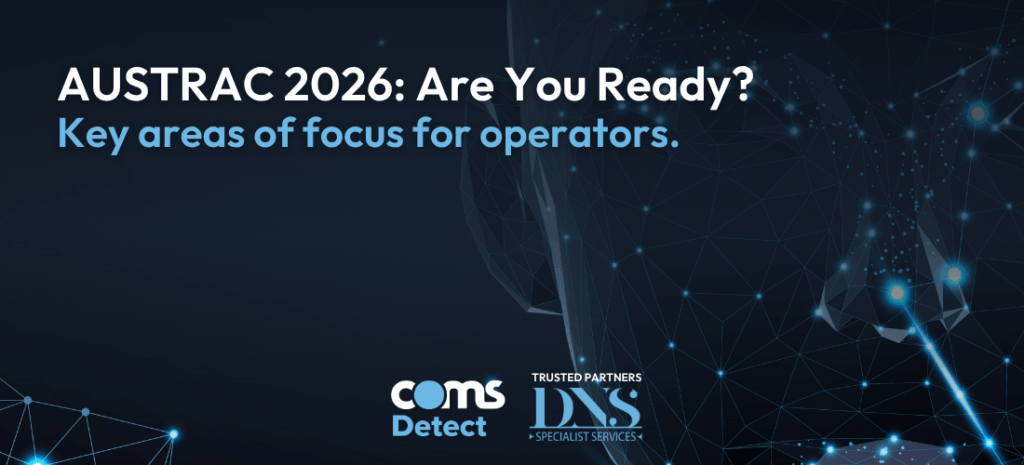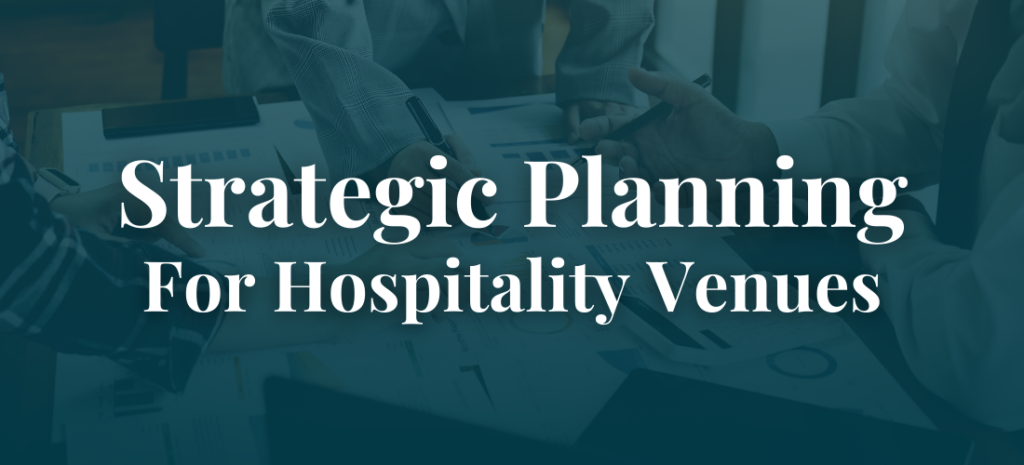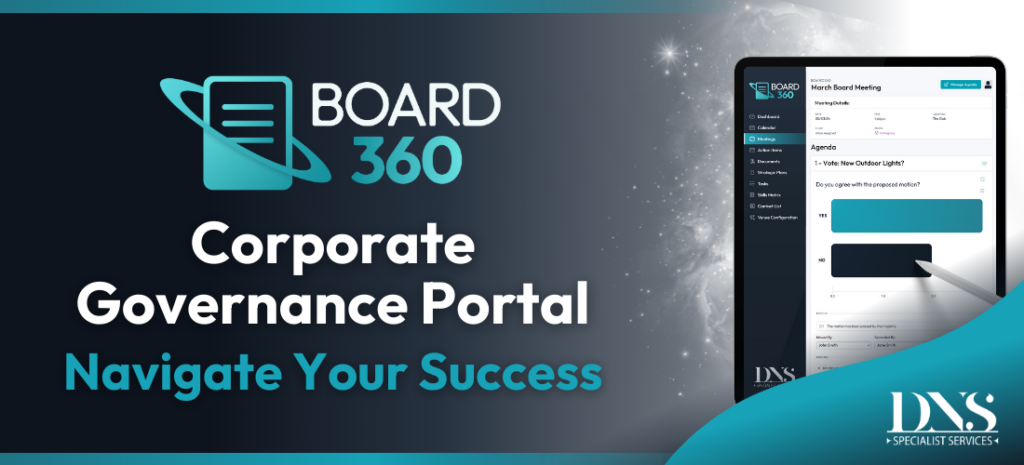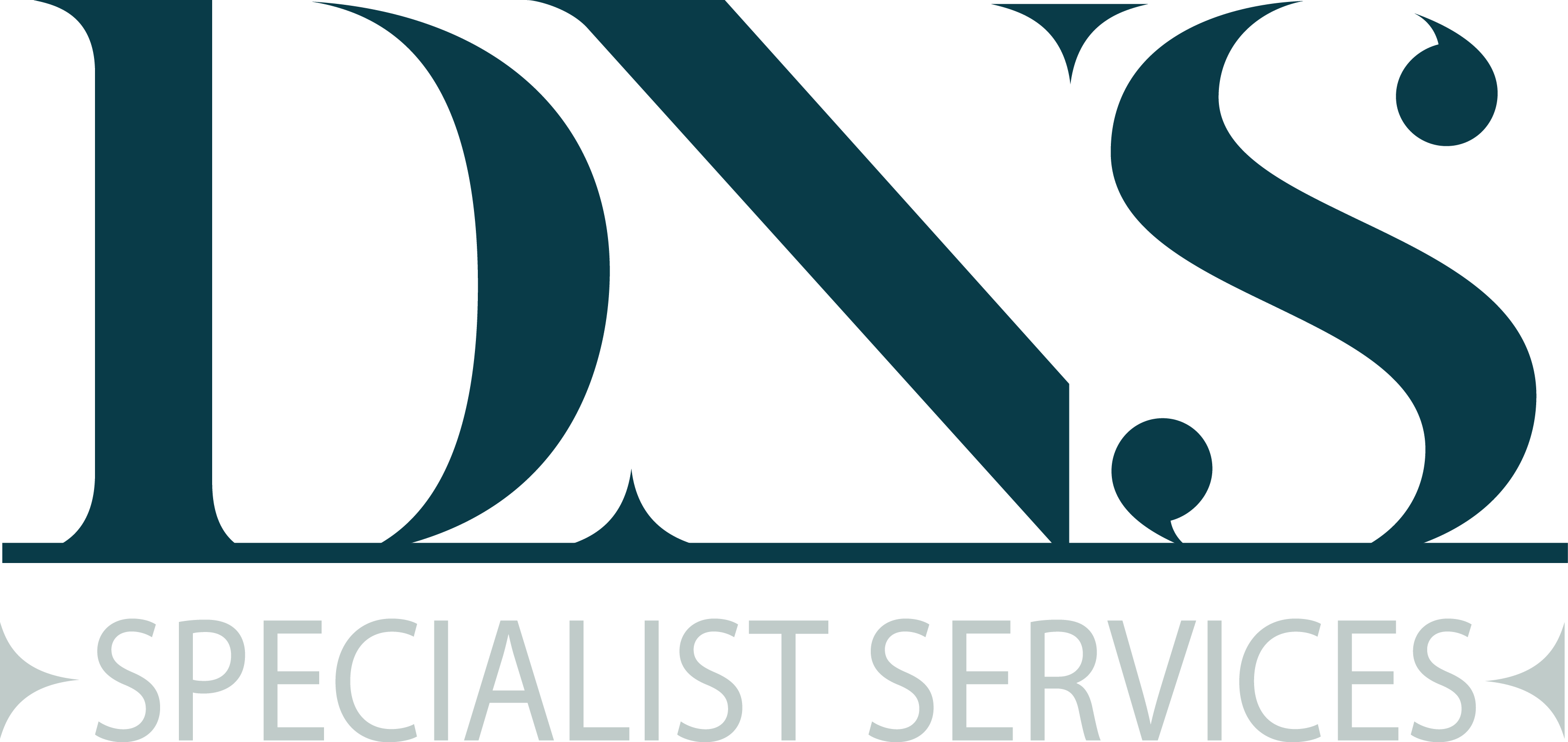Beyond the Headlines: Why This March 31 Matters More Than Ever

If it feels like the word “AUSTRAC” has been on repeat for the last six months, you aren’t imagining things. For the latter half of 2025, regulatory reform has dominated the news cycle, moving from niche industry discussions to mainstream headlines. But while the media buzz has focused heavily on the what and the when of these reforms, there’s a more pressing question for General Managers and Boards: Are we actually ready? March 31 is fast approaching, a date that is circled in red on every compliance calendar. Traditionally, this is simply the deadline for lodging your Annual Compliance Report. This year, however, it carries far more significance. With the reforms announced in August and the rolling changes throughout late 2025, lodging your report is no longer a routine administrative step, it’s a statement of your venue’s compliance and integrity. Regulators now demand proof, not promises. A policy on a shelf doesn’t satisfy today’s standards. Compliance programs must be actively managed, fully understood by staff, and clearly effective at preventing financial crime. Completing your Annual Compliance Report is no longer a routine task, it is a public declaration of your venue’s integrity. Without independent validation, even small gaps can become serious breaches. This is where the Independent Audit becomes your most valuable tool. The Compliance Report captures your venue’s compliance on paper, but the Independent Audit ensures it stands up in practice. By reviewing systems and processes against current legislation, an audit highlights areas for improvement before they escalate into compliance breaches, giving Boards and management confidence in their program’s effectiveness. If you haven’t locked in your Independent Audit yet, the window is closing. March 31 will be here before we know it, and the last thing anyone needs is a rush to the finish line. At DNS Specialist Services, we make this process seamless. We help you navigate the complexity of the new reforms and provide the independent assurance you need to sign your reports with total confidence. If you haven’t already engaged an auditor, now is the time to reach out. Take one minute to send us an email at info@dnsss.au, or reach out below, and we’ll take care of the rest.
When Loyalty Becomes Liability: AML/CTF Lessons from Australia’s Landmark Gambling Case

A recent Federal Court case against several of Australia’s largest online betting operators has placed a spotlight on a growing regulatory risk across the gambling sector: the dangerous intersection of VIP loyalty programs, weak AML/CTF controls, and inadequate harm-minimisation frameworks. At the centre of the case is a former financial planner who developed a severe gambling disorder and funded his betting through the misappropriation of client funds. While criminal responsibility for those actions is clear, the civil proceedings raise a critical question for regulators and industry alike: what obligations do betting operators have when red flags are visible, repeated, and ignored? AML/CTF Is Not Just a Box-Ticking Exercise Under Australia’s AML/CTF framework, wagering operators are required to understand their customers, monitor transactions, and make reasonable enquiries into the source of funds – particularly when gambling activity escalates rapidly or appears inconsistent with known income. In this case, betting activity reportedly reached tens of millions of dollars while the customer’s declared income remained modest. Yet meaningful intervention was delayed or absent. Regulators had already found licence breaches for failing to identify problem gambling behaviours, reinforcing that KYC and ongoing customer due diligence must be dynamic, not static. VIP Programs: High Revenue, High Risk VIP loyalty programs are designed to retain high-value customers, but they also represent a concentrated AML/CTF and consumer harm risk. Evidence in the case suggests VIP managers offered inducements, bonuses and personalised incentives that encouraged continued gambling despite clear warning signs. Where staff remuneration is linked to customer losses, the risk becomes structural. Commission-based incentives can undermine internal controls by discouraging intervention, escalation, or account restrictions—directly conflicting with AML/CTF and responsible gambling obligations. Harm Minimisation and Financial Crime Are Interconnected This case highlights a reality regulators increasingly recognise: financial crime risk and gambling harm are not separate issues. Excessive gambling, unexplained wealth, and compulsive behaviour often coexist, and effective compliance programs must address both simultaneously. Failure to intervene does not just expose organisations to regulatory penalties – it creates legal, reputational and ethical risk, particularly where stolen or illicit funds are involved. What Good Governance Looks Like For gambling operators, this case serves as a clear warning. Effective frameworks should include: A Turning Point for the Industry If successful, this legal action may reshape how loyalty programs operate across the sector and reinforce regulators’ expectations that profit cannot come at the expense of compliance or consumer protection. For organisations operating in regulated environments, the message is clear: loyalty must never override responsibility. Strong AML/CTF controls, combined with genuine harm-minimisation practices, are no longer optional – they are essential.
Navigating the Evolving Landscape of Harm Minimisation and AML/CTF in Hospitality

The goalposts are shifting for pubs and clubs when it comes to harm minimisation and preventing financial crime. With AUSTRAC’s 2026 AML/CTF reforms on the horizon, venues are facing a significant overhaul in how they approach risk management, customer due diligence, and ongoing monitoring. This isn’t just about ticking boxes; it’s about building a robust, tailored framework that protects your patrons, your business, and your reputation. The upcoming changes, rolling out from March 31, 2026, and further in July 2026, demand a proactive stance. AUSTRAC is clearly signalling heightened scrutiny, particularly around large cash transactions, electronic gaming machine activity, and the ongoing monitoring of high-risk individuals. We’ve all seen the headlines – the substantial penalties imposed on major players like Crown Casino and the ongoing proceedings against others. The message is clear: the stakes are higher than ever. So, what does this mean for you? A Deeper Dive into Due Diligence and Risk The reforms are bringing a more thorough way of getting to know your customers. While the requirement to identify customers for transactions above $10,000 will shift down to $5,000 in 2029 (lining up with international guidelines), the immediate focus is on a two-step process. First, you’ll need to identify and assess the risk of a patron before they use your services. Then, there’s ongoing observation throughout your relationship with them. It’s all about really understanding your patrons, gauging their risk level, and responding appropriately. For those who are lower risk, the process can be simpler, but for higher-risk individuals – such as foreign public officials or anyone showing suspicious behaviour – you’ll need a more detailed approach. Your AML/CTF Program itself will need a significant refresh. Gone are the days of generic templates. AUSTRAC now expects a truly risk-based approach, where your program specifically addresses the unique money laundering and terrorism financing risks inherent to your venue, your customer base, and your operations. This requires a thorough risk assessment that goes beyond a superficial overview. Technology as a Partner in Harm Minimisation This is where innovative solutions prove incredibly valuable. Beyond strengthened AML/CTF programs, advanced facial recognition technology (FRT) is a powerful tool for elevating harm minimisation and compliance. Venues are now able to proactively identify individuals who have self-excluded or those known to pose a risk to themselves or others – moving from reactive measures to informed, early intervention. DNS Specialist Services is proudly partnering with Coms Detect, bringing cutting-edge FRT solutions that integrate seamlessly into your venue’s existing security infrastructure. This partnership highlights our unwavering commitment to harm minimisation, providing technology that precisely assists in identifying individuals of interest and empowering your staff to intervene earlier and more appropriately. It’s not about negative surveillance; it’s about equipping your team with the essential tools to foster a safer environment and to more effectively uphold your social responsibility obligations. This proactive identification is a true game-changer in managing risk and ensuring unwavering compliance, helping venues navigate the evolving regulatory landscape and set new standards for patron safety. Staying ahead of the 2026 reforms and truly enhancing your harm minimisation efforts requires proactive planning and the right partnerships. Ensure your venue is not just compliant, but also operating at the forefront of patron safety. DNS Specialist Services provides the expertise and solutions you need. Explore our full range of AML/CTF audit and review services, and discover how our partnership with Coms Detect can strengthen your approach to harm minimisation.
A New Era in Harm Minimisation: DNS Specialist Services and COMS Partner to Deliver Facial Recognition Technology

The gambling and entertainment industry continues to evolve, and with it comes a pressing responsibility: to prioritise harm minimisation and safeguard vulnerable patrons. At DNS Specialist Services (DNS SS), we have long recognised the importance of equipping venues and staff with the tools they need to meet this challenge. Today, we are proud to announce a new partnership with COMS, a trusted leader in operational solutions for the sector, to bring advanced Facial Recognition Technology (FRT) to the market. Why Facial Recognition Technology Matters Facial Recognition Technology has emerged as a critical tool in the global effort to support safer gambling environments. With the ability to identify excluded or at-risk individuals swiftly and discreetly, FRT provides staff with confidence and actionable insights to better manage harm minimisation responsibilities. This is not about surveillance, it is about protection, responsibility, and care. DNS SS and COMS: A Powerful Partnership DNS SS, under the leadership of Managing Director Danny Nixon-Smith who also serves on the Safer Gambling Advisory Committee and represents the industry across multiple jurisdictions brings deep expertise in harm minimisation, regulation, and industry standards. COMS complements this with its reputation for delivering robust, scalable, and user-friendly operational systems. Together, we are delivering solutions that don’t just meet compliance requirements but set new benchmarks for effectiveness and practicality in frontline operations. Supporting Staff in a Changing Landscape The gambling sector is experiencing rapid change, from heightened regulatory scrutiny to growing societal expectations. Staff are at the heart of this change, and they need the right tools to succeed. By integrating DNS SS’s industry insight with COMS’s technology platform, we are empowering venues with advanced, reliable, and ethical tools to meet their harm minimisation obligations head-on. Looking Ahead As this partnership evolves, our shared goal is simple: to continue innovating and supporting venues, staff, and communities in building safer gambling environments. Facial Recognition Technology represents the next step in this journey a step we are proud to take alongside COMS.
The Mounties Wake-Up Call: Three Questions Every Board Should Be Asking

The Federal Court action AUSTRAC has launched against Mounties Group in a watershed moment for the hospitality industry. This isn’t just another regulatory breach; it’s a signal that should command the full attention of every Board and General Manager. When an organisation of that scale faces allegations of systemic failure, it proves no one is too big to be scrutinised. This heightened scrutiny isn’t happening in a vacuum. It’s a direct response to a well-documented national issue. The NSW Crime Commission’s estimate – that billions in illicit funds are washed through poker machines annually – provides all the context needed. The era of passive compliance is officially over. The new standard is demonstrable, active oversight. This new reality demands a shift in focus, prompting leadership teams to look inward and ask some tough questions across three critical areas of their operation. 1. Your AML/ CTF Program: Is It a Strategic Asset or a Delegated Task? Many venues rightly engage external experts to develop their AML/CTF program. The danger isn’t in the outsourcing of its creation, but in the outsourcing of its ownership. A program that is developed, delivered, and then left on its own becomes a significant liability. The Board and executive team are ultimately accountable. Do you genuinely understand the mechanics and commitments detailed within your program, or are you operating on the assumption that it’s simply being handled? Regulators now expect leadership to articulate their program’s strategy, not just defer to a consultant. 2. Your Risk Assessment: Is It a Snapshot in Time or a Living Document? A risk assessment is not a one-off event to be ticked and filed. Criminal threats, regulatory requirements, and even your own business operations are in constant flux. An assessment conducted last year may not accurately reflect your risk profile today. The crucial question is this: is your leadership team actively monitoring these changes and adapting your strategy accordingly? Regulators expect to see a continuous loop of assessment, adaptation, and action. A static risk assessment is a historical record; a dynamic one is a vital governance tool. 3. Your People: Is Your Team Trained, or Are They Truly Confident? A technically perfect program is useless if it’s not executed effectively on the floor. While staff training is a key component, the real metric is confidence. On a busy Saturday night, is your team – from gaming attendants to management – truly confident in their ability to identify and report suspicious matters? Or is there a culture of hesitation, a fear of getting it wrong, or a simple lack of clarity that creates an execution gap? This gap between policy and practice is where a compliance framework most often fails. The immediate lesson from this landmark case is that the definition of compliance has fundamentally shifted. It’s no longer about possessing the right documents, but about proving that active management and leadership accountability are embedded in your venue’s culture. If these questions create uncertainty, it’s a sign that a deeper review is needed. Let’s work together to ensure you are ready for the day AUSTRAC comes knocking. Connect with us for a confidential review of your AML/CTF framework or conduct a complete Harm Minimisation Program Audit.
Facing the Future: Navigating the Complexities of Facial Recognition Technology in Hospitality Venues

The recent Bunnings facial recognition controversy highlighted a critical gap in many organisations’ understanding and management of this powerful technology, particularly as many hospitality venues roll out the technology.
While facial recognition offers potential benefits for harm minimisation, its use raises significant ethical, legal, and reputational risks for venues. Failing to address these concerns can lead to hefty fines, damaged brand reputation, and eroded public trust.
Proactive Responsible Gambling: A Business Imperative for all Gambling Venues

The Queensland Gambling Survey 2023 reveals a stark reality: while overall gambling participation may be declining, the prevalence of at-risk gambling groups remains a persistent issue. The survey found that 0.64% of Queensland adults are classified as problem gamblers, a significant number who experience serious negative consequences from their gambling. This data emphasises the importance of proactive measures that prioritise prevention and early intervention, rather than simply relying on self-exclusion programs.
Heads Up, Pubs & Clubs: Insolvency Rates on the Rise, What’s the Plan?

The Queensland hospitality scene is known for its vibrancy, but there’s a storm brewing on the horizon. Recent figures from the Australian Securities & Investments Commission (ASIC) show a worrying trend – insolvency rates across Australia are rising, and that means tougher times ahead for pubs and clubs.
Navigate Your Success: New Corporate Governance Portal for Clubs

Strong corporate governance practices stand as the cornerstone for success and sustainability within the club industry.
With harm minimisation emerging as the number one focus in the industry right now, Club Boards and Committees face escalating pressure to uphold ethical and sustainable practices within the liquor and gaming environment.
